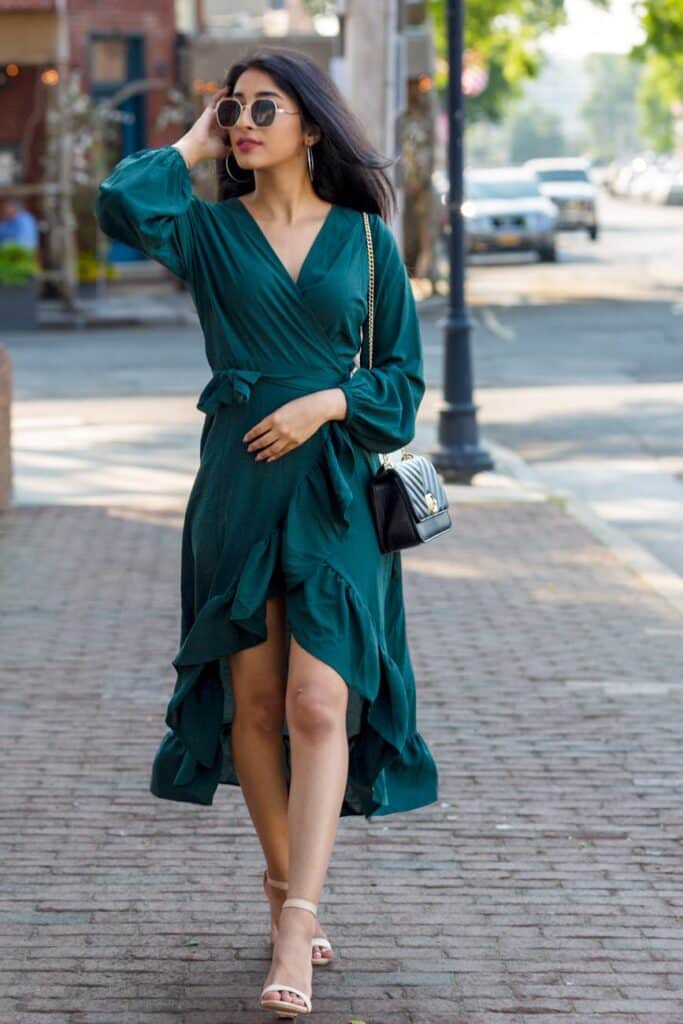April 7, 2022; Updated on 11/1/2024
It seems like everyone wants to be a designer these days, and who can blame them? The fashion industry is irresistibly alluring—runway shows, glamorous events, celebrity endorsements, and even the prospect of fame. But beyond the glitz and sparkle, a career in fashion design comes with its share of tough choices and hard work.
So, should you pursue a formal education in design or dive straight into building your fashion brand? The truth is that not all successful fashion designers follow the conventional path of design school. Many rely on an entrepreneurial spirit, using their business acumen to establish thriving fashion labels without touching a sewing machine.
Take Ralph Lauren, for instance. He sidestepped the world of sewing patterns and headed straight to market, building a billion-dollar brand by focusing on vision and strategy. Which path is right for you? Design school may be ideal if you’re passionate about sewing and creating garments from scratch. But if the excitement of the fashion world captivates you more than the technical aspects, you can still carve out a place for yourself—read on to discover how
Ever wonder what fashion designers do? Read on for more about becoming a designer.
Dreaming of Your Fashion Brand? Start Here.
You may admire designers’ seemingly effortless ability to produce trendsetting collections season after season. But behind the scenes, fashion design is a business that requires tremendous effort, planning, and support. It’s not all red carpets and photo ops. Running your fashion label means wearing many hats and embracing the less glamorous side of the industry.
Before designing logos for your brand or printing business cards, ask yourself: Are you ready to handle the gritty details? Initially, you might pack orders late at night, steam garments for fashion shows, or keep meticulous financial records. You may spend less time sketching designs and more time negotiating with suppliers, organizing logistics, or attending networking events.
Those taking the direct-to-consumer approach will need a polished e-commerce website, a merchant account for payment processing, and a solid understanding of inventory management. You may even need to hire professionals for technical tasks or marketing campaigns. If learning all this is overwhelming, consider gaining experience at an established fashion company first. An internship may be right up your alley.
However, if you’re up for the challenge, have a strong support network, and can trade skills or services, the entrepreneurial fashion route might be your calling. After all, we live in the era of the self-made designer—why not claim your piece of the fashion pie?
Facing the Realities of the Fashion Industry
The fashion world is full of opportunity but also rife with competition. You’ll go head-to-head with established brands, up-and-coming design school graduates, and celebrity lines. Are you ready to differentiate yourself and make your mark?
Running a fashion business requires incredible organization and foresight. You’ll need to manage the supply chain, source raw materials, and ensure your manufacturer has everything required to meet strict deadlines. As a fashion entrepreneur, think of yourself as a business leader first and a designer second. This mindset will help you navigate the unpredictable fashion landscape.
If this level of responsibility excites you, you may have what it takes to succeed. But if it feels intimidating, that’s okay too—many find comfort in working for existing brands before launching their own.
Not a Designer? You Can Still Work in Fashion.
You don’t need to be a master seamstress to have a successful career in fashion. Many visionaries hire pattern makers and technical designers to bring their ideas to life, functioning more like creative directors. If this resonates with you, ensure you have the business skills to support your innovative vision and a rock-solid Core Value Proposition.
Your brand must offer something unique and valuable. Whether inspired to create high-end couture or affordable fast fashion like H&M and Zara, understanding your target market and delivering on your promise is crucial.
Ultimately, there are many ways to make it in fashion. Whether you learn to sew, attend design school, or focus on business strategy, success in the industry boils down to creativity, business acumen, and relentless determination.
What are the next steps you should take to become a designer? Check out the guide.

